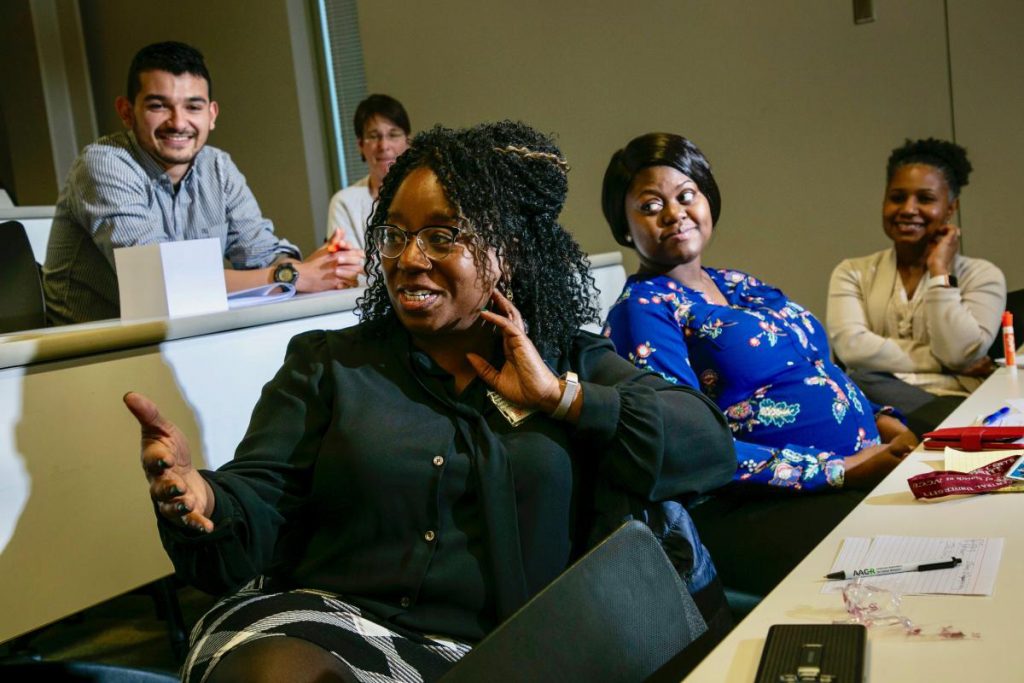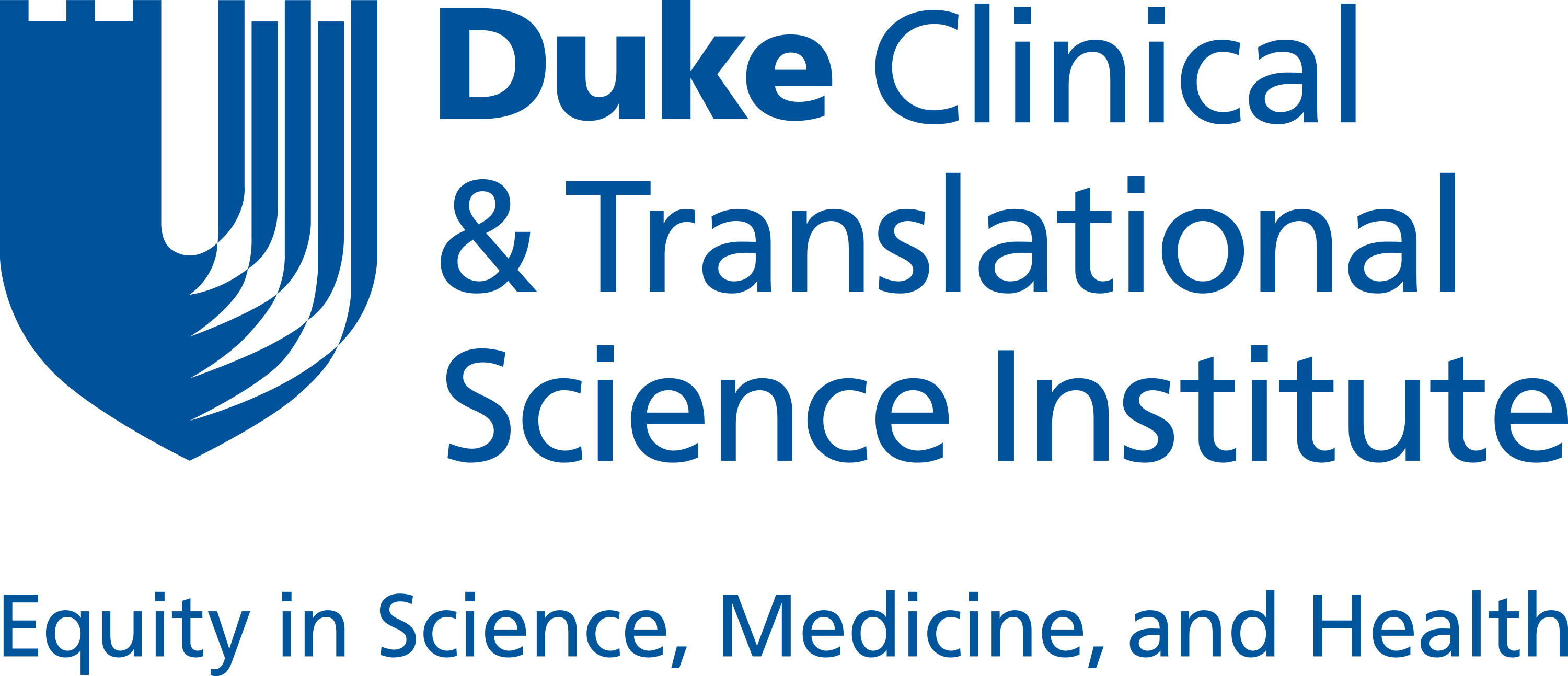New Center Dedicated to Equity in Research Offers Expertise, Learning Opportunities
Through the new Center for Equity in Research and a supporting core, CTSI has launched a range of initiatives to intentionally incorporate equity throughout the organization, including piloting a unique learning series for Duke employees called Teaching and Leading Equity Now.

Nadine Barrett, PhD
Both the Center and the Equity in Research (EIR) core provide infrastructure support for research teams and other CTSA cores to promote equity, anti-bias, and anti-racism across the research enterprise and environment. Among others, services include ongoing and evolving development opportunities for staff, faculty, and researchers, as well as consultations with investigators and teams about the urgent need to increase diversity in clinical research.
Fueled by the pandemic and racial reckoning during the summer of 2020, CTSI accelerated work already underway to fully integrate equity at every level, beginning with a survey to understand the institution’s baseline regarding equity, anti-racism, and anti-bias from three perspectives — interpersonal, intrapersonal, and systemic. The overarching themes of the survey results were shared during a highly interactive CTSI retreat, an event that helped launch the longitudinal journey by creating a shared language and vision to move the work forward.
“We’re not just thinking about our environment, but also the culture that builds our environment around these concepts,” said Nadine J. Barrett, PhD, director of the Center for Equity in Research. “Equally importantly, we want to make sure that the products we create and the work we do within the CTSI really reflect the use of an anti-bias, anti-racist, and equity lens.”

Keisha Bentley-Edwards, PhD; Dane Whicker, PhD; Sabrena Mervin-Blake
The new EIR core features the interdisciplinary expertise necessary to foster an equitable, anti-biased, and anti-racist research environment throughout the entire Duke CTSI and CTSA enterprise, Barrett said. The core is led by co-directors Keisha Bentley-Edwards, PhD and Dane Whicker, PhD. Sabrena Mervin-Blake is staff director for the core.
“This core will apply their great expertise to help our research become even more rigorous because we’re increasing diversity, as well as framing our research questions within the context of equity,” Barrett added.
The core will offer resource development including anti-racist and anti-bias curricula tailored to faculty, staff, and scholars, as well as providing equity-informed recruitment and retention resources and tools for research teams. Future plans include creating a clearinghouse of best strategies for increasing diverse participation in clinical and translational research, and developing a network of champions integrated across the Duke School of Medicine to promote equity in research.

Judy Seidenstein
“CTSI is a trailblazer for Duke in this area,” said Judy Seidenstein, chief diversity officer for the Duke University School of Medicine. “This intentional focus on longitudinal learning, instead of one-off training classes, has the potential to create a tipping point — a point when we reach a certain percentage of people who have a shared framework, language, and understanding which ultimately influences cultural transformation.”
So far, about 200 people in the School of Medicine have gone through Teaching and Leading Equity Now, the in-depth, four-week development workshop piloted by CTSI. Employees will have the opportunity to participate in this interactive virtual learning platform, which serves as a model across Duke.
“Each person will process and embed this work in their own unique reality and in their particular work,” Seidenstein said. “People will be able to apply and engage this framework in ways that contribute to our long overdue cultural tipping point.”
CTSI is partnering with institutional offices to provide training in equity and anti-racism for the entire health-related research enterprise at Duke (including the Schools of Medicine and Nursing). The four-part learning series consists of the following:
Workshop 1: Community Building & Defining Racism This initial workshop begins the task of building the learning community as it delves into defining racism as more than personal, as institutional, cultural, systemic and pervasive.
Workshop 2: History and Lessons for Today Examines how our history brought us to this moment as well as what we can learn from that history in the form of racial equity principles to guide strong anti-racist practice.
Workshop 3: The Three Expressions of Racism Offers an analytical framework for understanding how racism and white supremacy operate. This framework is also useful for considering how to collectively embed and apply a racial equity lens.
Workshop 4: Onward: Application for Dismantling Racism The concluding workshop invites participants to raise questions and concerns as they apply what they have learned to their practice, teaching, mentoring and work environments by providing facilitated space for problem-solving and planning.
